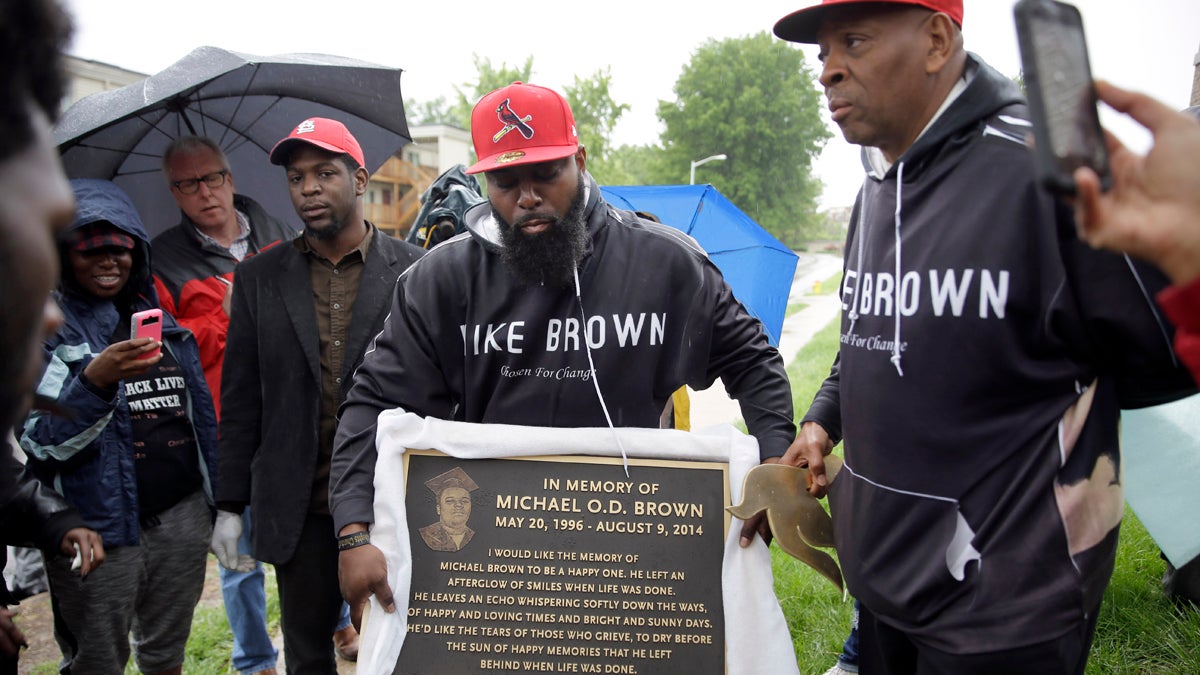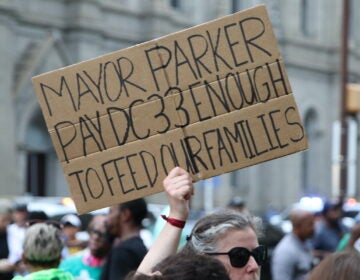All U.S. states out of step with U.N. standards on police use of deadly force

Michael Brown Sr. holds up a plaque honoring his son, Michael Brown, to show volunteers as they remove items left at a makeshift memorial last month in Ferguson, Missouri. The memorial that has marked the place where Brown was fatally shot by a police officer in August has been removed and will be replaced with the permanent plaque. (Jeff Roberson/AP Photo)
Pennsylvania is one of nine states allowing police to use deadly force against rioters who’ve been told to disperse. And in Delaware and New Jersey, police officers are allowed to kill someone trying to escape from prison.
Those findings are from a new report on deadly force released by Amnesty International that examines how state laws on police use of deadly force stack up against international standards.
“Police have a fundamental obligation to protect human life,” said Steven Hawkins, who heads Amnesty International. “Deadly force must be reserved as a method of absolute last resort. The fact that absolutely no state laws conform to this standard is deeply disturbing and raises serious human rights concerns.”
The U.N. international law standards call for using lethal force only when it’s unavoidable -– for instance, when it’s the only way to protect someone’s life. The U.N. also calls for officers to warn someone before firing at them.
The analysis found the laws are too broad in all 50 states. And no state has a law that requires deadly force to be a last resort. Nor does any state require that a less severe means of force be tried first.
What’s more, New Jersey and 12 other states have laws that don’t even comply with U.S. constitutional standards.
Amnesty’s Jamira Burley said stricter state statutes could help change the culture at individual police departments, so that more than an officer’s bias figures in a decision about when lethal force is appropriate.
To be sure, most city police departments have best-practices policies on when lethal force is considered legitimate.
For example, officers in Philadelphia are instructed to use deadly force “only in the most extreme circumstances and when all lesser means of force have failed or could not be reasonably employed.”
More ways of holding officers involved in fatal shootings accountable on the state level are needed, said Burley, meaning more regulations must be enshrined into state law.
And Pennsylvania, New Jersey and Delaware all should bring their laws in line with the U.N. standards, she said.
The report found that only eight states require a verbal warning be given prior to an officer firing a weapon. None of those states are in the Delaware Valley.
WHYY is your source for fact-based, in-depth journalism and information. As a nonprofit organization, we rely on financial support from readers like you. Please give today.




